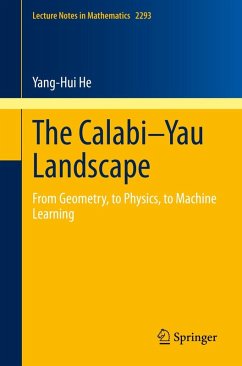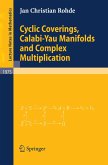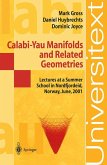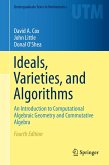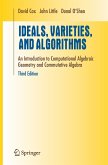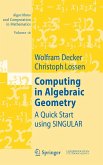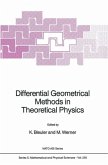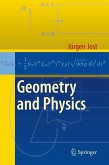Can artificial intelligence learn mathematics? The question is at the heart of this original monograph bringing together theoretical physics, modern geometry, and data science.
The study of Calabi-Yau manifolds lies at an exciting intersection between physics and mathematics. Recently, there has been much activity in applying machine learning to solve otherwise intractable problems, to conjecture new formulae, or to understand the underlying structure of mathematics. In this book, insights from string and quantum field theory are combined with powerful techniques from complex and algebraic geometry, then translated into algorithms with the ultimate aim of deriving new information about Calabi-Yau manifolds. While the motivation comes from mathematical physics, the techniques are purely mathematical and the theme is that of explicit calculations. The reader is guided through the theory and provided with explicit computer code in standard software such as SageMath, Python and Mathematica to gain hands-on experience in applications of artificial intelligence to geometry.
Driven by data and written in an informal style, The Calabi-Yau Landscape makes cutting-edge topics in mathematical physics, geometry and machine learning readily accessible to graduate students and beyond. The overriding ambition is to introduce some modern mathematics to the physicist, some modern physics to the mathematician, and machine learning to both.
The study of Calabi-Yau manifolds lies at an exciting intersection between physics and mathematics. Recently, there has been much activity in applying machine learning to solve otherwise intractable problems, to conjecture new formulae, or to understand the underlying structure of mathematics. In this book, insights from string and quantum field theory are combined with powerful techniques from complex and algebraic geometry, then translated into algorithms with the ultimate aim of deriving new information about Calabi-Yau manifolds. While the motivation comes from mathematical physics, the techniques are purely mathematical and the theme is that of explicit calculations. The reader is guided through the theory and provided with explicit computer code in standard software such as SageMath, Python and Mathematica to gain hands-on experience in applications of artificial intelligence to geometry.
Driven by data and written in an informal style, The Calabi-Yau Landscape makes cutting-edge topics in mathematical physics, geometry and machine learning readily accessible to graduate students and beyond. The overriding ambition is to introduce some modern mathematics to the physicist, some modern physics to the mathematician, and machine learning to both.
Dieser Download kann aus rechtlichen Gründen nur mit Rechnungsadresse in A, B, BG, CY, CZ, D, DK, EW, E, FIN, F, GR, HR, H, IRL, I, LT, L, LR, M, NL, PL, P, R, S, SLO, SK ausgeliefert werden.
"The description of the geometry of Calabi-Yau manifolds at the beginning of the book is directed to readers with a solid geometric background ... . The book mainly consists of a clear presentation on how neutral networks and machine learning tools can be usefully employed to interact (with a statistically high rate of success) with deep theoretical studies of geometric objects." (Luca Chiantini, zbMATH 1492.14001, 2022)
"The book assists the reader in such outsourced learning. It is structured as a sort of hypertext that provides general context and a big picture with embedded 'links' (references) to the more specialized literature. ... The message of the Calabi-Yau landscape is that it is time for both to learn data science, and this book is a fine place to start." (Sergiy Koshkin, Mathematical Reviews, October, 2022)
"The book assists the reader in such outsourced learning. It is structured as a sort of hypertext that provides general context and a big picture with embedded 'links' (references) to the more specialized literature. ... The message of the Calabi-Yau landscape is that it is time for both to learn data science, and this book is a fine place to start." (Sergiy Koshkin, Mathematical Reviews, October, 2022)

